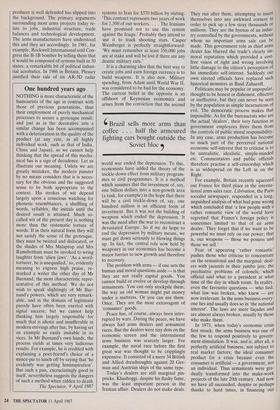One hundred years ago
NOTHING is more characteristic of the humourists of the age in contrast with those of previous generations, than their employment of purely mechanical processes to secure a grotesque result; and just as in the decorative arts a similar change has been accompanied with a deterioration in the quality of the product (at any rate, in all highly individual work, such as that of India, China and Japan), so we cannot help thinking that the spread of this mecha- nical fun is a sign of decadence. Let us illustrate our meaning. Unless we are greatly mistaken, the modern punster by no means considers that is is neces- sary for the obvious and the suggested sense to be both appropriate to the context. His strokes of wit depend largely upon a conscious watching for phonetic resemblances, a shuffling of words, syllables, the initials until the desired result is attained. Much so- called wit of the present day is nothing more than the systematic torture of words. If in their natural form they will not satisfy the sense of the grotesque, they must be twisted and dislocated, or the shades of Mrs Malaprop and Mrs Ramsbotham must be invoked to wring laughter from 'alien jaws'. 'As a word- torturer, he is unequalled,' so, evidently meaning to express high praise, re- marked a writer the other day of Mr Burnand, the most characteristic repre- sentative of this method. We do not wish to speak slightingly of Mr Bur- nand's powers, which are very remark- able, and in the domain of legitimate parody have often been exerted with signal success; but we cannot help thinking him largely responsible for much that is idiotic and insufferable in modern strivings after fun, by having set an example so easily imitable in its vices. In Mr Burnand's own hands, the process yields at times very ludicrous results. For example, he is credited with explaining a poet-friend's choice of a mince-pie to lunch off by saying that 'he evidently was getting himinspiration'. But such a pun, excruciatingly good in itself, nevertheless suggests the dangers of such a method when ridden to death.
The Spectator, 9 April 1887
























































 Previous page
Previous page